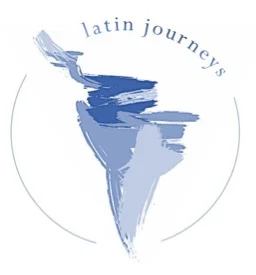Brothers in arms
Last week, the Cuban Foreign Minister, Bruno Rodriguez, warned the international community against meddling in Venezuela. He told reporters that external interference could lead to “violent extremism”. This caution came as Venezuela is gripped by violent protests as increasing opposition movements look to oust Nicolas Maduro, the President of Venezuela, who rules the country as a de-facto dictator, and has ruined the economy through economic mismanagement. Maduro himself claims that the US is orchestrating the unrest.
But why is Cuba so concerned by Venezuela? It is due to the close relationship between the two countries, a legacy of their late dictators: Fidel Castro and Hugo Chavez.
In many ways Castro and Chavez were destined to be friends. Both came to public attention leading failed armed coup attempts; both spent time in prison as a consequence, and both eventually came to power with socialist ideals. In 1999, Chavez visited Havana and called Castro his ‘brother’ having idolised the latter for years.
Travelling through Cuba, as with Nicaragua (see previous article ‘Chavez’s roundabout’, 31 Jul 2016), you occasionally come across Chavez’s face on socialist propaganda billboards. Outside the Venezuelan embassy in Havana, a poster of Chavez is accompanied with the words ‘Hasta siempre’, translated as ‘Until forever’ – although it would appear that Maduro is doing his utmost to ruin the Bolivarian Revolution fantasy; how Chavez must be rolling in his grave.
But it was far more than just friendship and similar ideals that brought Cuba and Venezuela together; this was just the facade. They relied on each other for economic and political reasons: it was a union of convenience.
In 2000, Castro and Chavez approved an ‘oil-for-doctors’ programme. Venezuela would supply Cuba with oil in return for Cuba supplying Venezuela with doctors, nurses, teachers and scientists – respectively, they were in great need of these assets to secure popularity.
The relationship became more political and entrenched in 2002, following a failed military coup in Venezuela when Chavez was ousted for one day. The Venezuelan President became so paranoid about disloyalty in his inner circle that he sought support from Castro. As a result, significant numbers of Cuban intelligence and military personnel were sent to Venezuela. These Cuban ‘advisors’ helped Chavez: build up a ‘loyal’ military; improve healthcare and education in poor and rural areas to bolster his support base; modernise public record systems; centralise his power; manage his image and control inflation. Cuban intelligence even took command of Chavez’s security detail.
A Venezuelan expat in Mexico told me that their country’s government is “run by Cuba”, with Castro’s ‘tentacles’ everywhere. According to the expat, Cuba has two key interests. Firstly, it wants to preserve a ‘friendly’ government. Secondly, it needs access to plentiful and cheap oil (to maintain economic growth and keep the populace content). If people feel their economic situation is deteriorating, revolt may beckon – look at Venezuela!).
In President Nicolas Maduro, Cuba has maintained an ally and someone they can control – the current Venezuelan President is loyal to Cuba, having been brainwashed in his twenties at Havana’s Escuela Nacional de Cuadros Julio Antonio Mella, an academic institution run by Cuban communists. In fact, many believe that while Chavez was secretly receiving treatment for terminal cancer in Havana, he was pursuaded by Castro to appoint Maduro as his successor.
A Chavez poster outside of Cienfuegos, Cuba
The Washington Post reported last year that the Cuban infiltration of Venezuelan state institutions “led to a bizarre situation where Castro often had a clearer intelligence picture of what was happening inside the Venezuelan state than the Venezuelan state itself”.
But the good times are over though. Under Chavez, the oil price was above USD 100 per barrel. It is now approximately USD 50; it fell to USD 20 last year. Venezuela’s freefall has hit Cuba’s economy, which has become dependent on Venezuelan oil – accounting for half of Cuba’s energy needs – since Chavez and Castro’s pact. Maduro can no longer afford to give his allies cheap oil.
With no more Venezuelan oil bankrolling the Cuban Revolution, perhaps Cuba has had to look to its closest, but most reviled, neighbour, the USA. Is it a coincidence that Raul Castro has opened up to the Americans? Perhaps it is. But perhaps Cuba had no other choice faced with economic downturn. The only other option, with the Latin American pink tide residing (look at Brazil, Argentina and Ecuador), is China. China’s trade with Cuba grew by 57 percent in 2015. However, having just come back from Cuba, I see the importance of tourism to the island, and American tourist dollars will easily pour into Cuba if allowed.
It is a little ironic, though, that Bruno Rodriguez criticised external meddling, coming from the government that has made such a success of it for its own interests.







